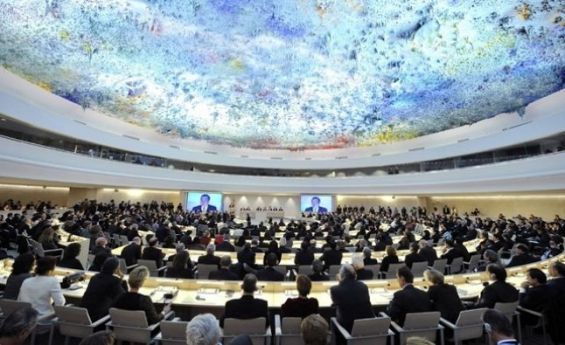A Moroccan delegation headed by Mustapha Ramid, the Minister of State for Human Rights, is set to attend on Thursday 21st of September the 36th session of the Human Rights Council in Geneva, Switzerland. Morocco will have to present officially, the recommendations that the ministry accepted and the ones it refused.
In a primary report issued by the Ministry in August and published on the official website of the United Nations Human Rights Office of the High Commissioner, the Kingdom fully accepted 191 recommendations, 23 of them have already been implemented and 168 are under implementation. On the other hand, Morocco has taken note of 44 recommendations of which 18 are partially rejected and 26 of them are entirely refused.
The Ministry insisted on its report entitled «The Kingdom of Morocco’s position on the recommendations issued after review of its national report under the third cycle of the Universal Periodic Review (UPR)», that 9 particular recommendations were not accepted as they fall within the mandate of the United Nations Security Council.
And as its title suggest, the report was there to explain why certain recommendations were rejected with a number of arguments justifying the Ministry’s decision. «The Kingdom of Morocco underlines that its position on recommendations by full or partial rejection or by non-acceptance has been taken in compliance with the principles and provisions of the constitution and ratified international conventions», states the document.
The recommendations rejected
Regarding the recommendations that were rejected, the Ministry explained why it rejected the implementation of 5 major ones. Morocco partially refused joining the Rome Statute of the International Criminal Court and harmonizing national legislation with its provision, insisting that «the Constitution condemns all acts considered as crimes in the Rome Statute…the substantive conditions of joining the Rome Statute have not been settled yet». It also rejected partially the total abolition of capital punishment while maintaining the moratorium indicating that «the Kingdom stopped the executions since 1993».
The Kingdom also partially refused ensuring equality among all citizens regardless of their sexual orientations and identities, decriminalizing homosexual relations, and repealing some Family Code provisions on Guardianship marriage and heritage, arguing that it «confirms that the constitution has laid the principle of equality among all citizens and created mechanisms to protect it».
Regarding religious minorities, the Kingdom refused partially the removal of restrictive practices towards Christians and other minorities, especially regarding religious practices and freedom of thought and conscience, in accordance with international laws. To justify its refusals the reports indicated that «Morocco guarantees the freedom of practicing religious rituals and beliefs to all its residents, regardless of their nationalities or beliefs» adding that «the Kingdom of Morocco rejects the use of people’s need for help and the exploitation of underage children in schools, hospitals, shelters or orphanages, just as much as it guarantees, by law, the freedom to exercise all religious affairs without discrimination, as a land of openness, tolerance and freedom».
The recommendations fully rejected
For the recommendations fully rejected by the Ministry, and hence by the Kingdom of Morocco, the report mentions four main ones. Morocco refused completely the recommendations concerning the repeal or reform of some legal provision «in contradiction with the federative constants of the Moroccan Nation indicated in the Constitution».
Moreover, recommendations related to refraining from prosecuting journalists under laws other than the Press and Publications Code were also denied because «the prosecution of journalists in cases that do not fall within their professional assignments should not be subject to this exception, in order to guarantee citizen’s rights and equity before the Law».
The Kingdom’s arguments will be discussed tomorrow in Geneva before state members of the United Nations Human Rights Office. In May 2017, Mustapha Ramid accompanied by a delegation presented the government’s national reports during the third cycle of Universal Periodic Review where Morocco was given 244 recommendations.




 chargement...
chargement...












